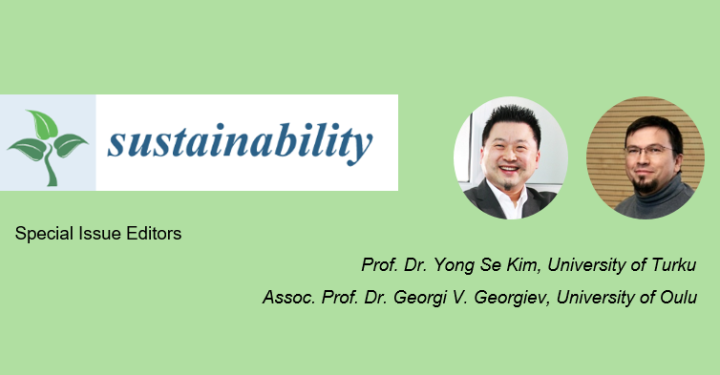Call for Papers: Sustainability special issue on “Sustainable Experience Design Education”
The new Special Issue “Sustainable Experience Design Education” of the journal Sustainability has been announced.
Experiences are created by individual consumers and users under various contexts. How sustainable consumption experiences are made reflects the characteristics of the actors and diverse contexts, including their cultures and living situations. While the goals to design sustainable consumption experiences and to support learning for student designers in higher education institutions can be common throughout the world, effective and efficient education methods and expertise for sustainable experience design education can vary, reflecting relevant characteristics and the contexts of experiences, design and education in various regions in the world.
Note that sustainable experiences comprise four dimensions of sustainability: Ecological, Economical, Social and Experiential Sustainability. The latter is used to assess, for example, whether consumers’ and users’ consumption experiences support ecological sustainability and such experiences should keep evolving in a sustainable manner with leadership from consumers and users. That is, experiences should be designed so that consumers will keep improving, deepening and widening their consumption experiences toward ecological sustainability.
The aim of this Special Issue is to provide a channel to identify and to communicate various educational and related research efforts in various regions of the world so that successful efforts in sustainable experience design education can be shared and learnings about not-so-successful trials in such educational endeavors can be communicated. In this way, sustainable experience design education in many regions can be enhanced through mutual learning opportunities.
In this Special Issue, original research articles and reviews are welcome, including articles on educational efforts with significant discussions on comprehensive reflections and findings. Research areas may include (but are not limited to) the following:
- Sustainable Consumption Experience Design Education;
- Design Education for a Circular Economy;
- Design Education for Sustainable Development;
- Education for Ecological, Economical and Social Sustainability;
- Diverse Contexts for Experiences, Design and Education for Sustainability;
- Design for Experiential Sustainability and Education;
- Design for Social and Cultural Sustainability and Education;
- Design Education for Elderly Life and Sustainability;
- Service Design Education with Sustainability Focus;
- Interdisciplinary Design Education for Sustainability;
- Project-Based Design Education for a Circular Economy;
- Design Thinking Workshops and Education for ESG Community;
- Skill Development for Sustainable Experience Design;
- Development of Sustainable Experience Design Curriculum;
- Assessment of Sustainable Experience Design Education;
- International Network for Sustainable Experience Design Education.
Prof. Dr. Yong Se Kim
Dr. Georgi V. Georgiev
Guest Editors
